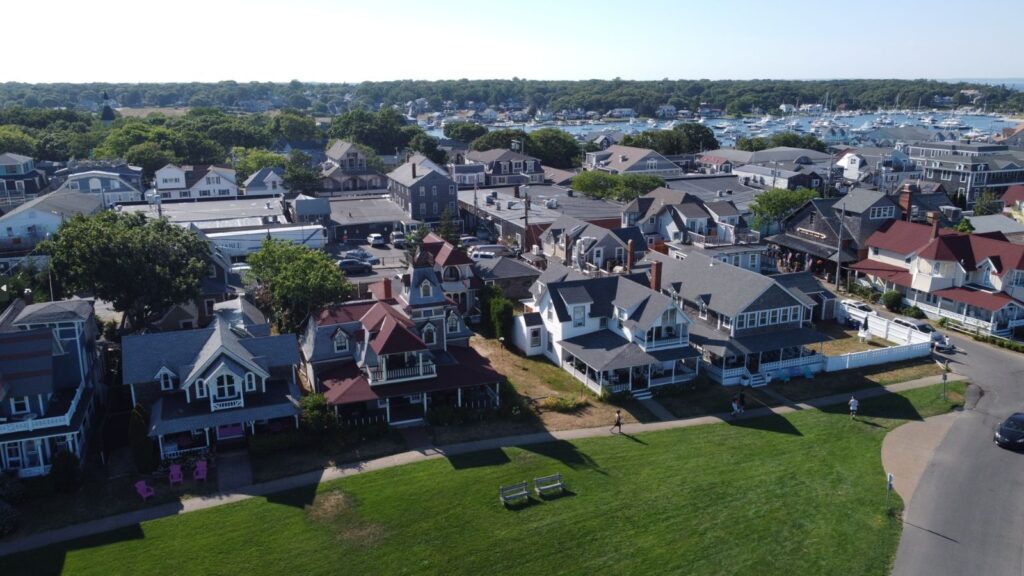Are you planning your retirement? After years of hard work and financial planning, it’s important to make sure you get the quality of life you want as well as financial stability and access to the services you need. These 18 states may not be the best choice for retirees due to a wide variety of issues.
New York

New York’s cost of living is significantly higher than the national average, particularly in New York City, making it challenging for retirees with fixed incomes. The state also imposes taxes on all forms of retirement income, including pensions and Social Security benefits over $20,000, according to AARP.
California

Known for high real estate prices, the average price of homes in California is significantly higher than national figures, making it difficult for retirees looking for affordable housing. On top of this, the state’s taxes are some of the highest in the country, affecting income, property, and sales taxes.
New Jersey

Retirees who own a home in New Jersey face one of the highest property tax rates in the U.S., significantly impacting their financial stability. The cost of living in the state is also well above the national average, particularly when it comes to housing, healthcare, and transportation.
Illinois

According to Illinois Policy, “Illinois is home to the nation’s worst pension crisis. Chicago alone faces more pension debt than 44 states.” Although the state offers a lower-than-average cost of living, retirees in the state face uncertainty when it comes to the stability and reliability of their retirement benefits.
Connecticut

Connecticut’s residents face substantial expenses for housing, healthcare, and utilities, which can be challenging for retirees who are on a fixed income. The state also experiences cold winters, which may not be ideal for retirees who are seeking milder climates. Finally, the state has a high income tax, including for pensions.
Massachusetts

According to Unbiased, Massachusetts is “home to one of the highest levels of cost of living in the country.” The Boston area is particularly expensive, with significant housing costs. The state also offers excellent healthcare, but with high prices, which may be more important for retirees.
Oregon

Retirees who have income beyond Social Security may find the high income tax rates in Oregon to have a significant impact on their finances. On top of this, the cost of living, particularly in urban areas such as Portland, is rising and the cost of housing is growing faster than the national average.
Rhode Island

Rhode Island’s state taxes apply to most forms of retirement income, including Social Security benefits above a certain threshold, which may affect the plans of retirees who are moving from a different state. The property taxes are also among the highest in the country, adding to the financial burden on retirees.
Vermont

The picturesque landscapes of Vermont may be tempting to retirees, but they come with a high cost of living, especially in terms of housing and healthcare. On top of this, retirees may find the rural nature of the state to be challenging in terms of accessibility to healthcare and other essential services.
Maryland

Maryland’s proximity to major urban centers like Washington, D.C., means it has a high cost of living, particularly in housing. While the state offers residents a diverse environment and ample healthcare options, the high income tax rate may be too much of a financial burden for retirees.
Hawaii

Hawaii offers retirees a stunning environment but has the highest cost of living in the U.S., particularly in terms of housing and groceries. This is, in part, due to the state’s isolated location, meaning the importation of goods is much more expensive. This can be challenging for retirees on a fixed income.
Minnesota

Minnesota offers excellent healthcare and a high quality of life for residents, but it also has a high cost of living and high tax rates. The state taxes Social Security income above a certain threshold, in addition to other retirement incomes, which could significantly impact retirement plans.
Colorado

According to the Colorado Sun, 85% of Coloradans noted the state’s high cost of living to be one of their “extremely or very serious” problems in 2023. While the state offers beautiful natural landscapes and an active lifestyle, retirees need to consider the cost of living as well as the tax implications of Colorado.
Alaska

Alaska provides residents with unique financial benefits, including no state income or sales tax, and even provides residents with a yearly Permanent Fund Dividend. However, the cost of living is high due to its remote location, particularly in terms of groceries, utilities, and healthcare.
Delaware

Tax-friendly for retirees, Delaware has no state sales tax, low property taxes, and no taxes on Social Security benefits. However, for many retirees, this is outweighed by the state’s high cost of living, especially in housing in the popular beach communities. The availability and cost of healthcare are also concerning for retirees.
Nevada

While Nevada offers tax advantages such as no state income tax, there can be a high cost of living in areas like Las Vegas and Reno. On top of this, the National Library of Medicine found that “the state ranks among the lowest in terms of available primary care doctors and general surgeons per capita.”
Maine

Maine offers a serene environment for retirees, but the high cost of living makes it inaccessible for many. The state’s rural nature can make access to healthcare and other services challenging, which may be a particular concern for retirees, plus the cold winters might not be what many are looking for in retirement.
Arizona

Popular for its warm climate and busy retirement communities, the cost of living in cities like Phoenix and Tucson is on the rise, particularly when it comes to housing and healthcare. Arizona doesn’t tax Social Security benefits, which is a plus for retirees, but other retirement incomes are taxed.
